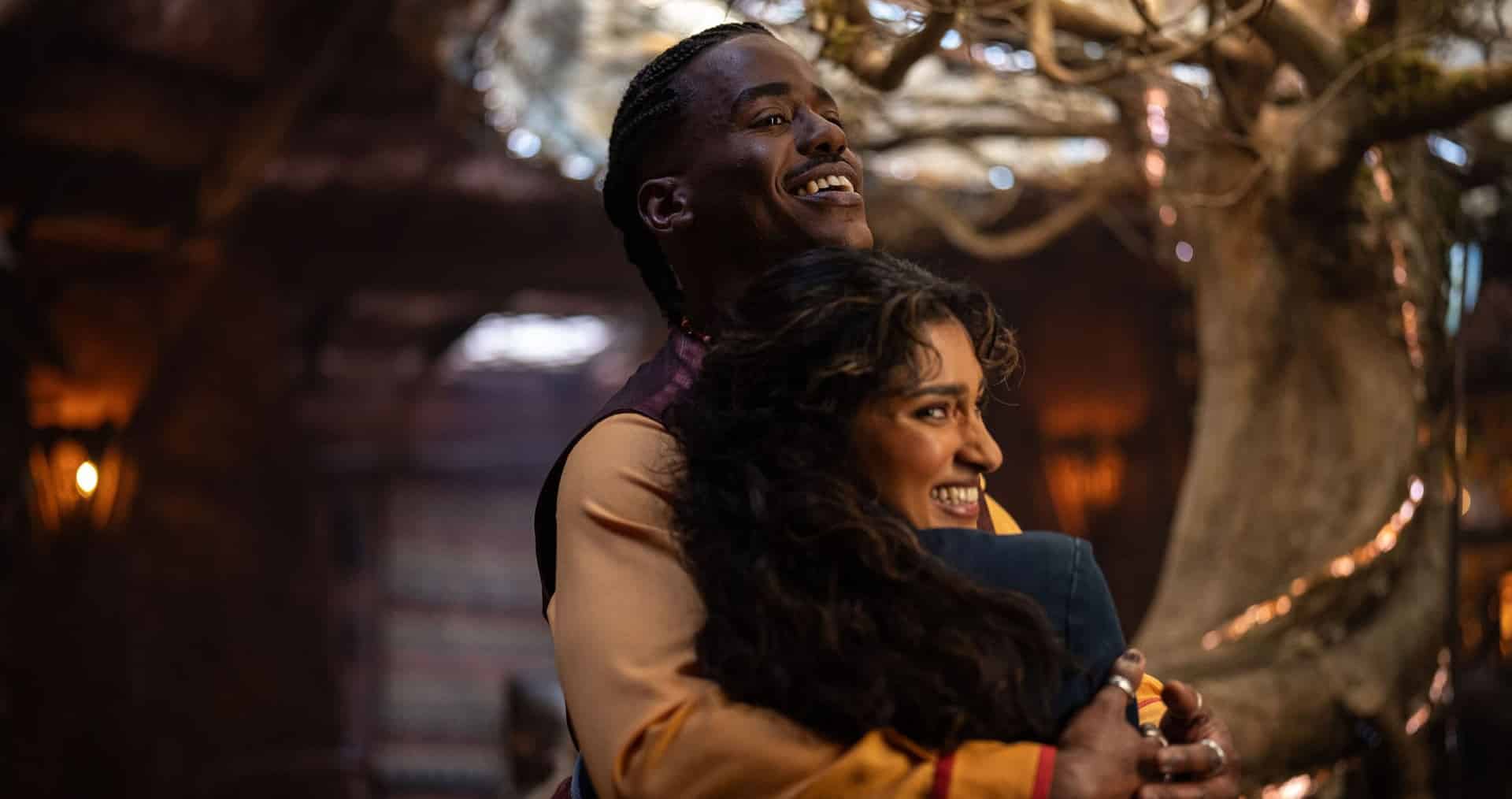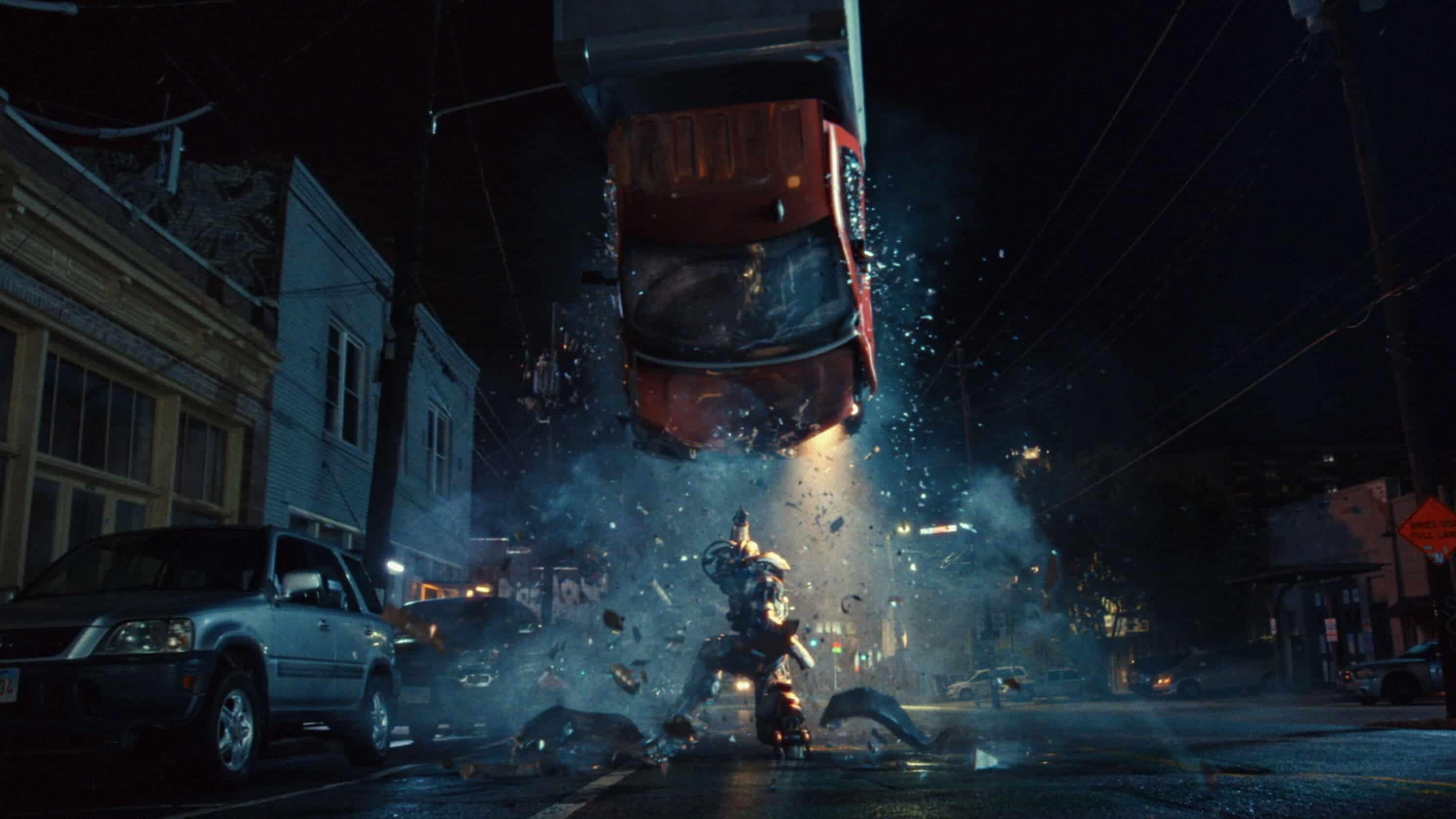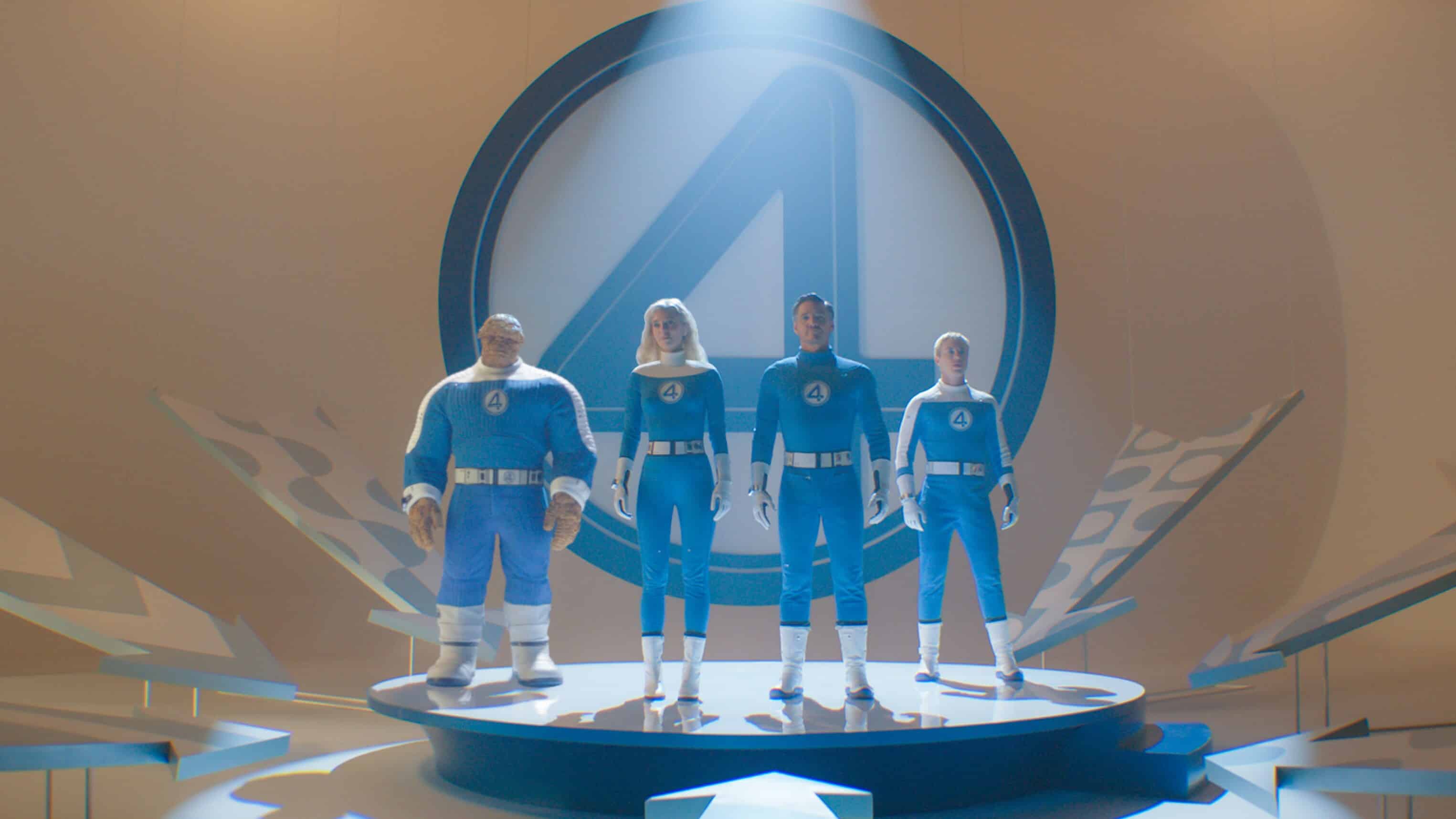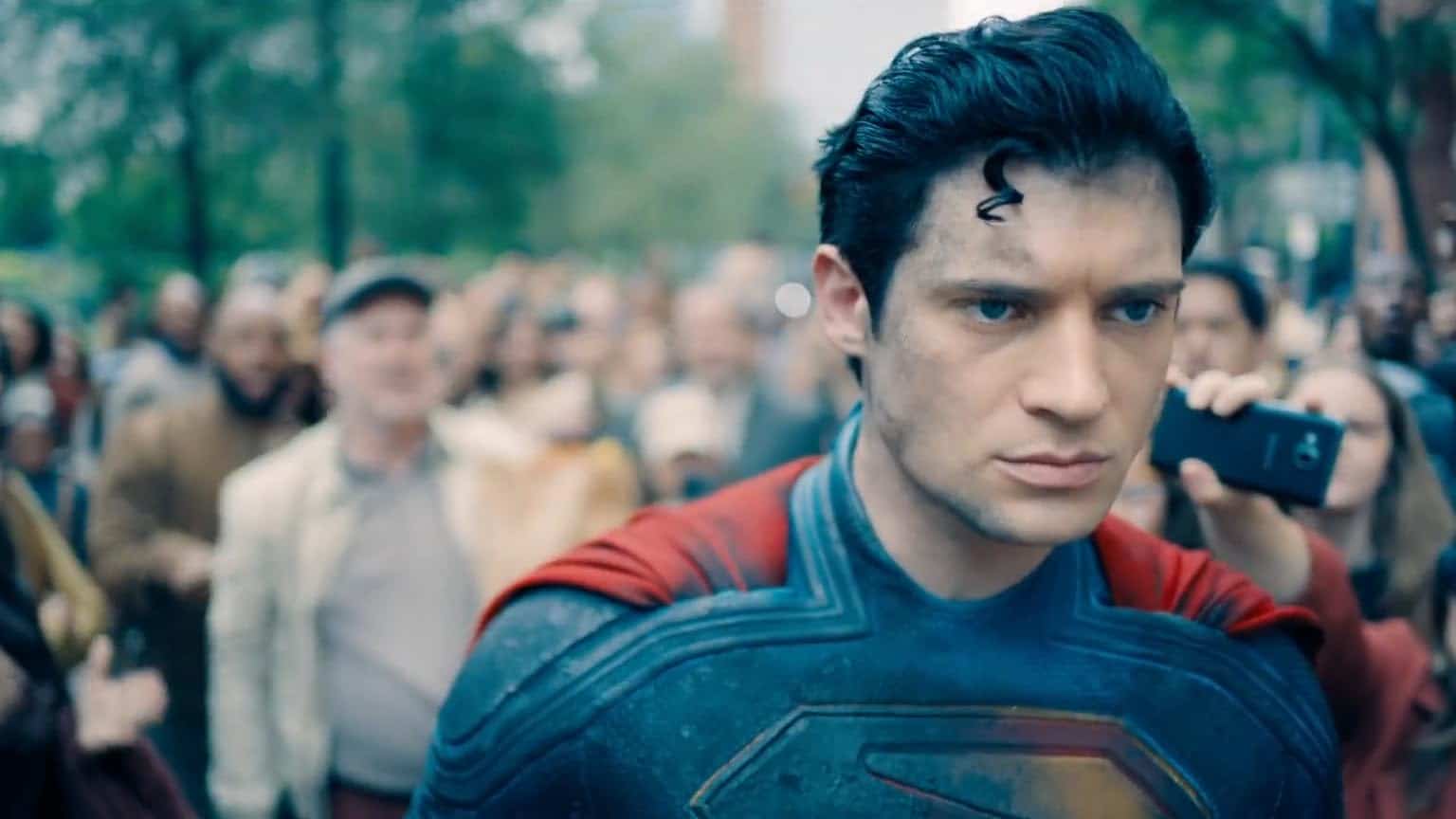Armaan Babu: If any story is told for long enough, you’re going to come to a part of it that tells you how important stories are. Writers can’t help themselves, and in their defense, they’re not wrong. Stories matter, and stories have power.
Where critics like us come in is that we recognize that while stories have power, there is equal if not greater power in how the story itself is told, in recognizing how important the storytelling craft is.
“The Story and the Engine” is an episode that touches on the power of stories, but the way it’s told undercuts a lot of the power it could have. There’s a lot I enjoyed about this episode. There’s a lot I didn’t. Overall, as satisfying as it feels to label an episode (or, for that matter, a comic) good or bad, I am not entirely sure how I feel about this episode overall.
Fortunately, I have company for these reviews, and together we can tackle our mixed and not-so-mixed feelings about this episode. Margot, what are your first thoughts?
Margot Waldman: My helpfully clearcut, unambiguous opinion about this episode is … much the same. Conceptually, it’s a triumph. Practically, it’s more of a puzzlement than anything. I think the ideological underpinning of the episode – that the Doctor, as a Black man, is, in some places, absolutely and unconditionally welcomed and welcoming in his Blackness, that he chooses community and friendship in a little Lagos barbershop, is brilliant, fascinating.
It might be the single most characterizing aspect of Gatwa’s Doctor so far – that he is the kind of Doctor who would take time to be with friends — ordinary, human friends. It’s a dynamic I can’t really find a parallel to in the whole show’s run. Sure, the Doctor is comfortable with — friends with — the Brigadier, Romana and the Nobles (I guess he really is, now, at that). But is he home? I don’t think we’ve ever seen this before, except with the Bigenerated 14. But that’s the end of his story – and, at least I hope, Gatwa is still in the middle of his.
Armaan: This era series has shown a clear desire to have a conversation with real world issues. It has also, however, not shown much willingness to truly dive deep into those issues. As such, it could have easily gotten away with acting like Gatwa’s casting was colorblind; having the Doctor simply be Black, in the same way that Peter Capaldi’s doctor was older or that Christopher Eccelston’s had big ears.
They chose not to do that — it wants to draw attention to issues that arise with the Doctor’s current race. Unfortunately, the show’s ability to have that conversation with anything approaching genuine depth feels … limited. There’s a lot to dive into while discussing a Doctor who’s spent most of his time (at least, as far as we know) being a white male now being a different race, and we’ve not gotten a lot of that. That said, I do love the idea of the barbershop being a place where the Doctor finds acceptance. It’s not something he’s had to worry about before — not like this. He’s always passed for human, a white male human, and while he’s always been lonely, he’s rarely had to feel rejected by people who don’t even know him.
What Belinda said about her mom taking her to India to find places of acceptance struck an interesting chord with me. I moved to India when I was 6, and I don’t know if I’ve ever found a place of instant acceptance that feels like what the Doctor and Belinda are talking about. On the other hand, I think of the few times I’ve been to the U.S. as an adult — and what a surprising relief it is to be in spaces that aren’t white-centric, like I could release a breath I didn’t know I’d been holding.
For reasons of meta-simplicity — that being that Doctor Who has been conceived of and mostly shot in England — the majority of the Doctor’s adventures have been in England, a majority-white country. He can go anywhere in space and time, yet he keeps returning to that one tiny little country, over and over again, even in his newest form. There’s something heartening about the fact that now he’s in a body that forces a new perspective on him, he finds home in places outside of England. There’s something depressing about the fact that it took a change in his body this drastic for that to happen.
I’m glad the show started to have that conversation, and I’m also frustrated by how simplistic, how minimal it is. Science fiction allows for the exploration of ideas that other genres simply don’t, and time and time (heh) again, it feels like the show’s taking the easier route and missing opportunities for something real.
Margot: The problem is that for a space defined in writer Inua Ellams’ imagination by story, there is not much of a story to tell in this barbershop. I love the idea that this is a Doctor who’d take the time to compliment fresh haircuts, to get a haircut, but beyond that, this episode feels more like a pitch or a premise or a sketch. Actually, Armaan had a great point about what it feels like most of all:
Armaan: It feels like a play. Both Margot and I have worked in theater, and Ellams is a playwright himself. I like the script, and I love the concept for the episode, but there are some things that work in a play that don’t translate well to a 45-minute episode.
Margot: I want to be clear; I looooooooooove the concept of the episode. I think the fact that Doctor Who is a science fiction show that can be like this is incredible, and I will almost always take bold if unsuccessful over tame but competent. But I do think this is ultimately bold and unsuccessful. But god, imagine being this bold! IMAGINE! OK sorry, back to Armaan.
Armaan: The fact that most of the episode is centered on a single, relatively minimal scene, the Barber slowly transforming himself into a slightly different representation of himself during the course of his monologue — these are things that work great on stage. However, the stage also tends to give moments in a story time to breathe. This episode felt like a two-hour play crammed into less than half the time.
The twists are rushed. The middle chunk of the episode is largely just a series of expositions. Reactions that ought to sell the story are real blink-and-you’ll-miss-it moments. And worst of all, the characters in the barbershop are thinly written.
The three customers who need to get home get about a line of dialogue each about the home they need to get to, but it doesn’t play into what they do over the course of the episode. They’re largely just … there, as the rest of the episode happens, and not much would change if they were removed entirely. The episode’s main villain, the Barber, has a confusing origin that is muddled by his quickly abandoned lie about being every storytelling god in existence. When the Doctor is betrayed by Omo, we’re halfway through him yelling about it before we realize how much of a betrayal that moment really is.
This episode also brings up a lot of questions that it doesn’t take the time to dive into. How does a mortal become an immortal being? What makes the Barber apparently the only mortal who could spread the stories of the gods? How prevalent are the gods in the world of Doctor Who? Their existence is apparently tied into the hopes and dreams of all of humanity, which is a wild thing to throw into a series that hasn’t really delved into matters of religion or really mythology before.
This episode has a lot of big things in it, but between how rushed it feels, the overuse of expository dialogue and the big questions that are just thrown out there that we’re expected to accept at face value (and if there’s one thing that Doctor Who teaches its fans, it’s not to take things at face value), there were a lot of big moments and concepts in this episode that just felt entirely unearned.
Margot: I can accept that Bastet and Anansi exist in the Whoniverse now, I really can. That is not a problem to me. Plot holes don’t matter if the themes cohere – but I guess I am not sure what the themes necessarily were here. What is going on here from a metaphorical point of view? Metanarrative is one of my favorite kinds of narrative, but the reflexivity of it is based in the experience of engaging with that narrative, right? “Love and Monsters” is a hot fucking mess, but the first half of it works so well because it is hyperspecifically focused on a single experience, that of fandom – specifically Doctor Who fandom.
Armaan: I do want to take a moment to point out all that I appreciate about this episode, because there were a lot of things about it that I adored. The wall that projects stories has beautiful art and is a beautiful framing device. The sets are gorgeous. There’s love and care put into recreating a marketplace in Lagos, and the scene of the Doctor walking through it, more at home than we’ve ever seen him, where it’s as bright and as warm as Ncuti Gatwa’s smile. The heart encased in a brain as a functional Story Engine is a brilliant idea.
The whole giant mechanical spider is brilliant, in fact. A moving vehicle that travels across a web of narrative and is powered by stories? That’s brilliant. It’s a cooler vehicle than the TARDIS could ever hope to be (yeah, I said it!), and I was heartbroken that it was destroyed at the end. In fact, this episode seemed to hint at the existence of Story Lords, a counterpart to the Time Lords. I was disappointed to find that that wasn’t what they were going for, either. The idea of a six-word story to contain a life is a powerful one, and it does set the Barber up for a hell of a return so we can find out what his six words would be.
Actually, I’d love to share a quote from my partner, Poorna M., who watched this episode with me, who said, “The Barber was never meant to be a writer. He’s an editor. He trims. He shapes.” The Barber, as a concept, is fascinating. Never the creator of the stories themselves, with vengeance in his heart for those who do.
And as rushed as the scenes leading up to Omo’s betrayal felt, Gatwa’s performance as he explained to Omo the weight of that betrayal was, in my opinion, his strongest performance as the Doctor yet. The way his voice softened and his eyes widened as he tried to get Omo to understand just how deeply the Doctor had been hurt. The way his disappointment hung heavier in his voice than his anger did. The pain turning to a colder seriousness as his walls went up and he simply went about his business of helping the barbershop’s captives escape.
Margot: At the same time, I wish it made sense that he forgave him as easily as he did. It’s not a problem, but it gets to the idea of the enormity of the episode, and how the smaller moments get lost in it.
Armaan: I agree, strongly. The ending of the episode was saccharine. Major wrongs had been committed by multiple characters, all revealed in this episode, but in the wrap-up, all is quickly forgiven as they bask in the evening glow of a successful escape. It was, again, unearned, and a weak end to some very compelling plot points.
Margot: This episode is at its best when it is in that space of hyperspecificity – of the barbershop. Of course, I’m not suggesting that a writer as obviously thoughtful as Ellams should only be allowed to engage one culture’s understanding of fiction, its stories. It’s just that in a stage play, the strongest images are the ones you can see.
So there are naturally primary images and secondary images. I have to say that the claustrophobia and dread of a once-safe place no longer being so, the idea of a barbershop you cannot leave, the image of the red and green buzzers, is a very strong one. These are the primary images – and so I just don’t know if like, Saga and the Nexus are really as strong as they could be. Yes, there’s a projector so we can “see” Belinda’s story, but it’s not strong enough to be really there. We can see so little of what goes on offstage that it’s not existential – it just feels muddied.
The problem is that in this episode it is difficult to draw the universality the story demands – the idea that the noblest and best story of all is basic human endeavor (Belinda selflessly saving a life) – from what we see onscreen. It’s not just that it’s difficult to feel these stories in their full power – it’s that, frankly, it’s difficult to see that these stories are as powerful as we’re told they are. As much as I hate to say it, the simple fact is that as much as I love the idea of the Doctor showing his love of the common human condition, it is a little hard to see what it is about these particular characters that is so appealing. The other barbershop prisoners have exactly one character trait each – one is a runner, one has a wife, and so on.
Even Omo’s interplay with the Doctor is thin. I wonder if it would have been stronger to trim the cast, to focus on only one or two “real” stories – to give them the time to sing. I’d also have to say that for all the shading the episode implies for the Doctor, it might as well have not had Belinda in it. She’s talked about, sure – but what does she do? What do we learn about her in this episode? We have barely any more time with her – and I admit I still don’t know who she is. It’s all part of the sketchiness of this episode. Who is the Barber, really? Maybe he should have been Anansi. It seems we’re meant to infer quite a lot about him, but he literally doesn’t have a story of his own to tell. That parasitism could make for an interesting kind of villainy – I just watched Sinners last night, and let me tell you, that was a movie with interesting metanarrative villains – but this just doesn’t cohere.
Neither does the script’s engagement with the Doctor Who legend – especially bringing back the Fugitive Doctor (Jo Martin, whose performance I have always liked a lot!) – make much sense. It’s canny, of course, to situate the Doctor Who mythology as just as spacious as any religion’s, but the grammar of the episode frankly doesn’t do the work to make the Doctor’s modern myth stand alone, stand apart. How is the Doctor distinct from the other gods? Obviously, we’re told that the destruction of mythology would be … bad in some unclear way, and obviously we know Doctor Who well enough to know that his saving of the pantheons of mankind is, you know, a good thing. But I did briefly smirk at the self-interest of it.
Besides, not every myth – not every story – is a good one (just look at Conrad in “Lucky Day”!) Maybe some are worth killing – stories are dangerous. These are things we could have explored, and just … didn’t. We even highlight some of the more unpleasant, unnerving elements of, say, the Anansi legend – he comes off in this episode as a lecher, a player, a sexist. Shouldn’t stories be allowed to evolve? I’m not defending the Barber here – but there’s complexities here that we’re not getting into. For all that, there was a lot of ambition here, and a lot of poetry – a lot of beauty, but not a lot of breadth. Armaan, any final thoughts?
Armaan: The concept of this episode is brilliant. There were a lot of plot points and concepts that felt fresh, and exciting. The problem is that the execution of the episode did a disservice to the elements that could have made this episode an all-time classic. It was muddled, and rushed – but it also left me a lot to think about, and a lot to come back for. I wish this episode had been more, but it also left much that will sit with me for a while.
“The Story and the Engine” is a great story, but it deserved a much better telling than it got.
Margot: I can’t agree more.
Well, that’s that! Join us next week for “The Interstellar Song Contest.”







